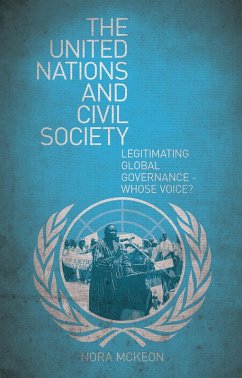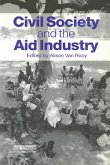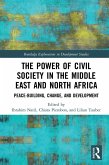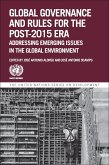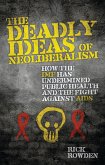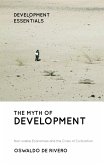The UN is able to recognize key global challenges, but beset by difficulties in trying to resolve them. In this, it represents the current global political balance, but is also the only international institution that could move it forward.
Civil society can be a catalyst for this kind of change. In this book, Nora McKeon provides a comprehensive analysis of UN engagement with civil society. The book pays particular attention to food and agriculture, which now lie at the heart of global governance issues. McKeon shows that politically meaningful space for civil society can be introduced into UN policy dialogue. The United Nations and Civil Society also makes the case that it is only by engaging with organizations which legitimately speak for the 'poor' targeted by the Millennium Development Goals that the UN can promote equitable, sustainable development and build global democracy from the ground up.
This book has strong ramifications for global governance, civil society and the contemporary debate over the future of food.
Civil society can be a catalyst for this kind of change. In this book, Nora McKeon provides a comprehensive analysis of UN engagement with civil society. The book pays particular attention to food and agriculture, which now lie at the heart of global governance issues. McKeon shows that politically meaningful space for civil society can be introduced into UN policy dialogue. The United Nations and Civil Society also makes the case that it is only by engaging with organizations which legitimately speak for the 'poor' targeted by the Millennium Development Goals that the UN can promote equitable, sustainable development and build global democracy from the ground up.
This book has strong ramifications for global governance, civil society and the contemporary debate over the future of food.

